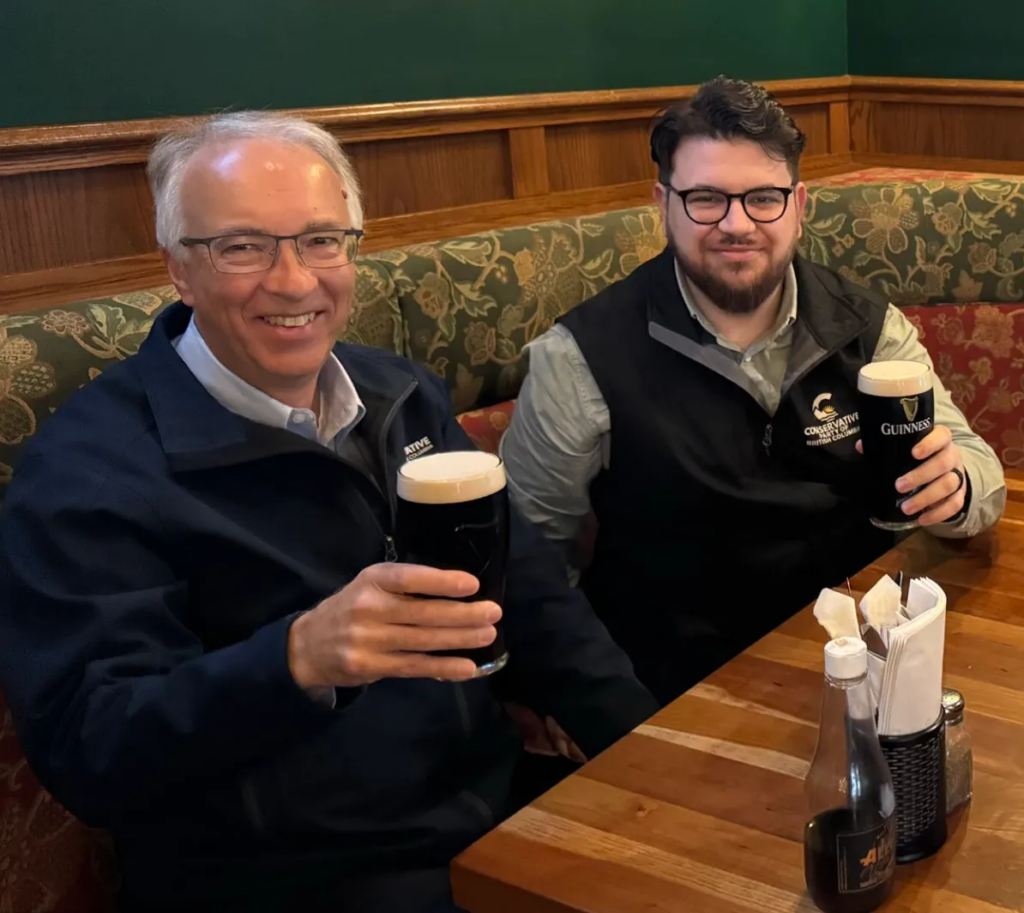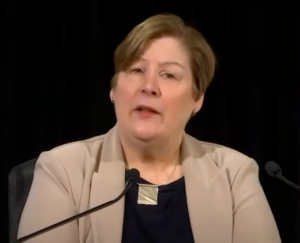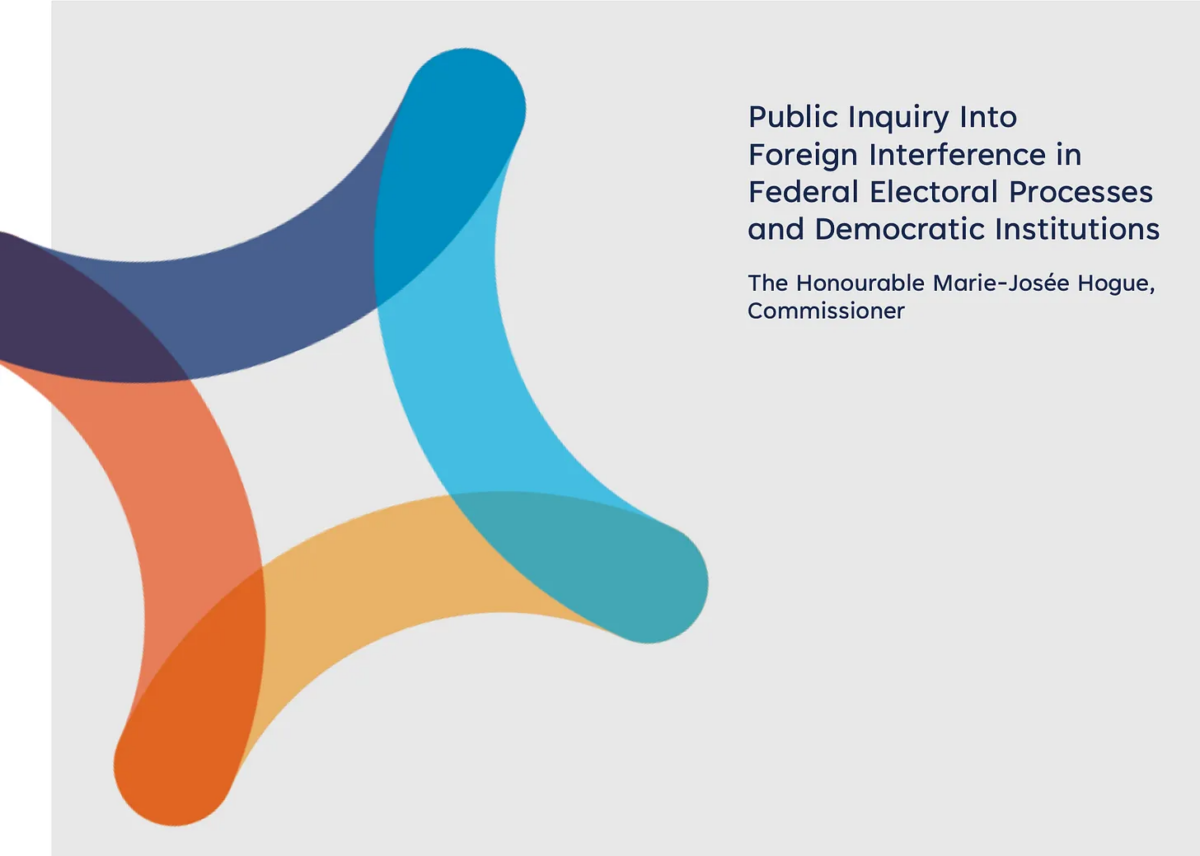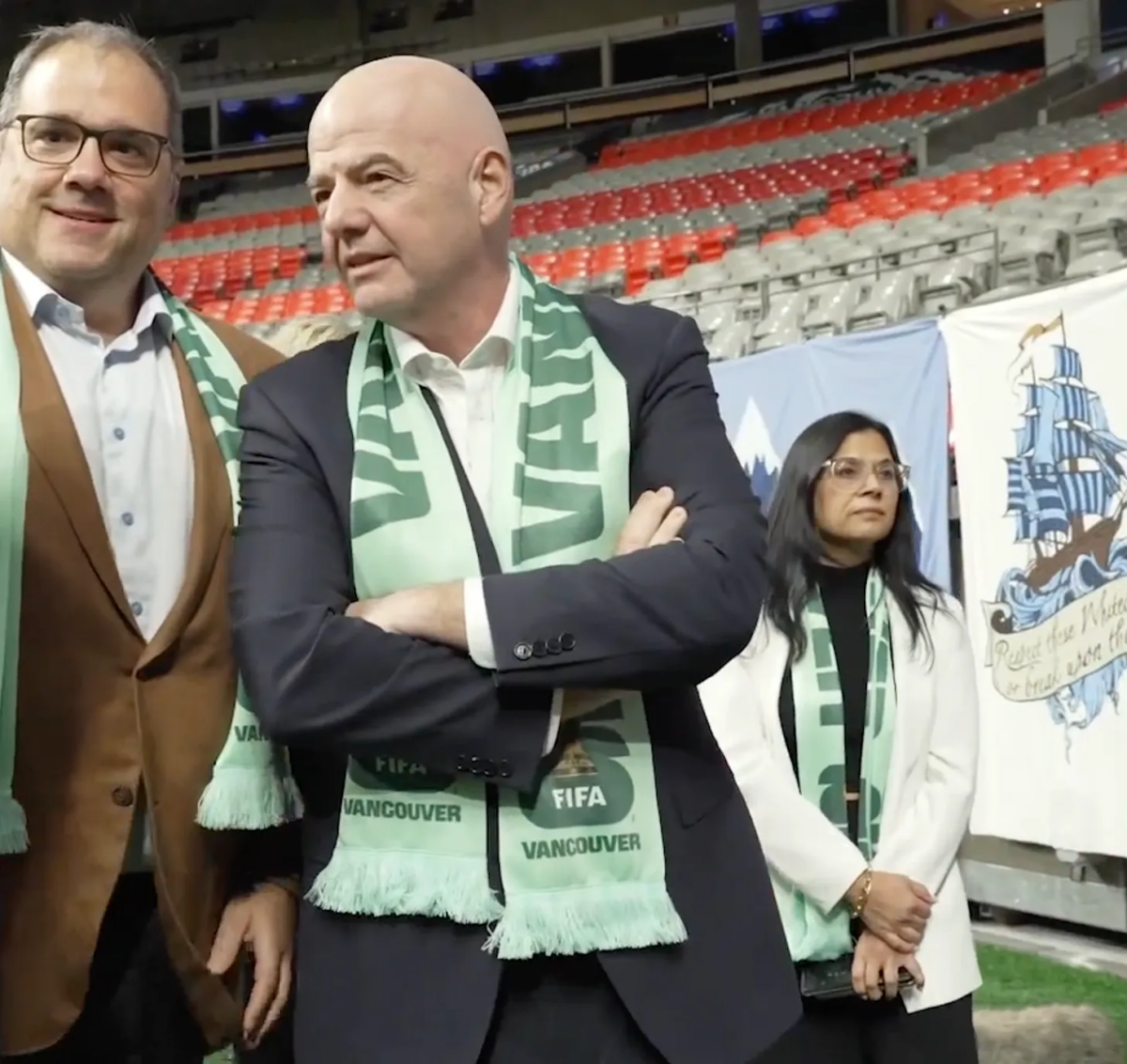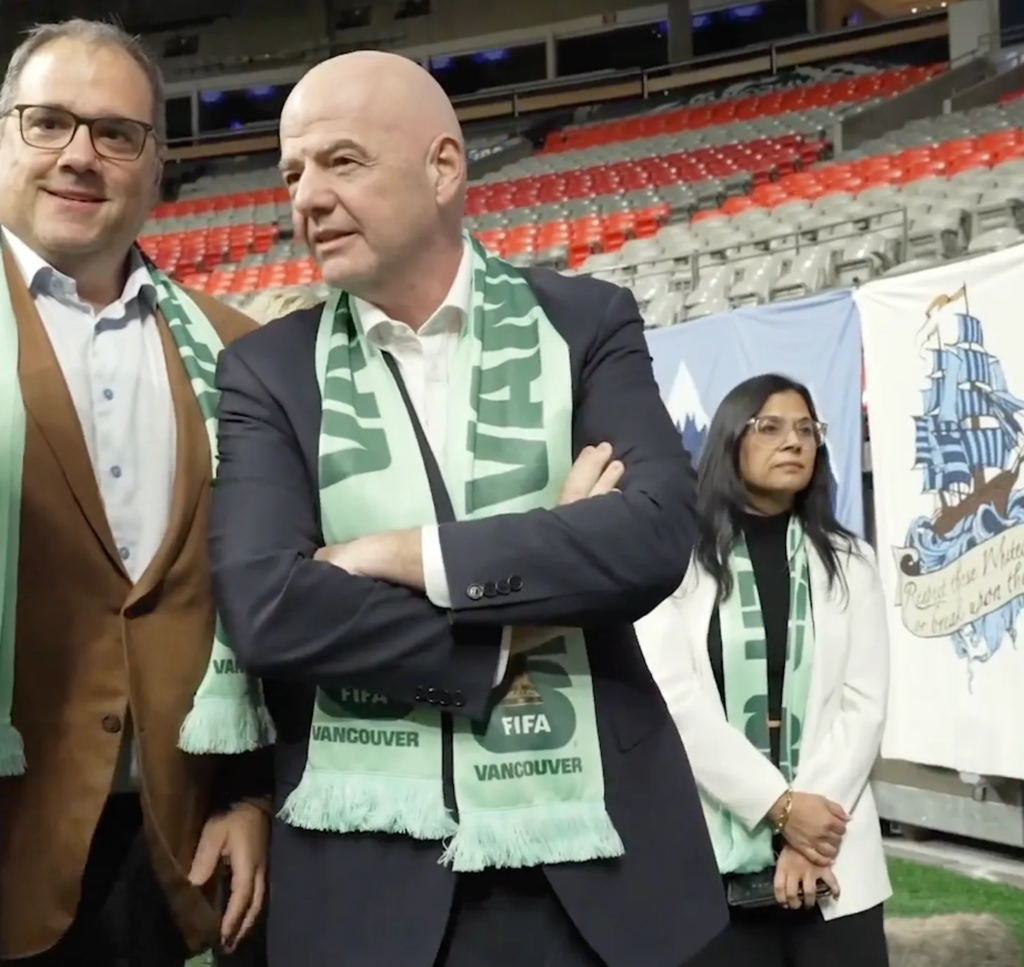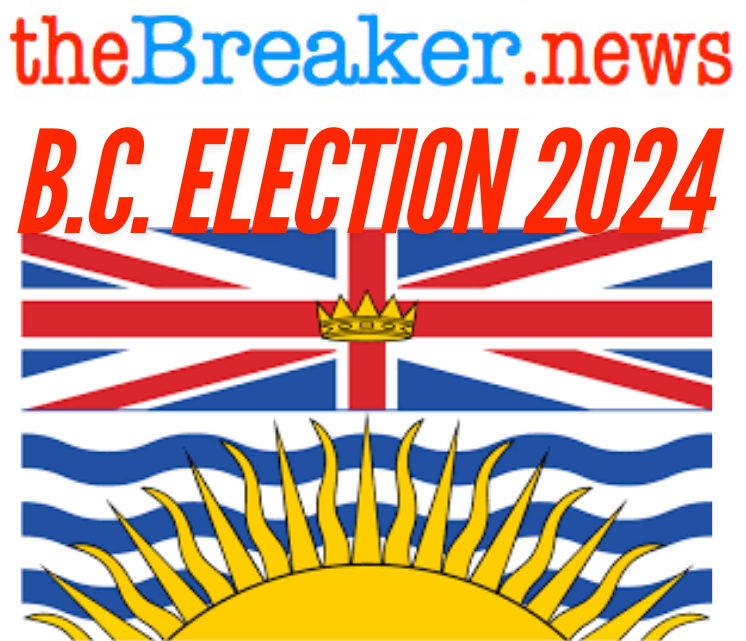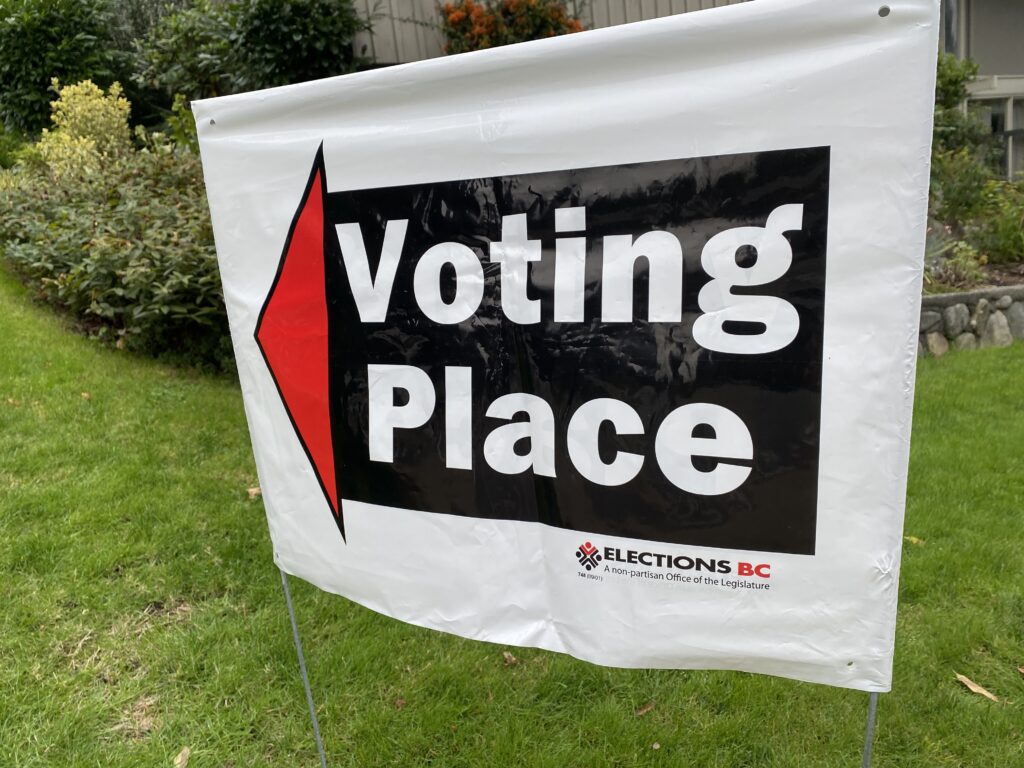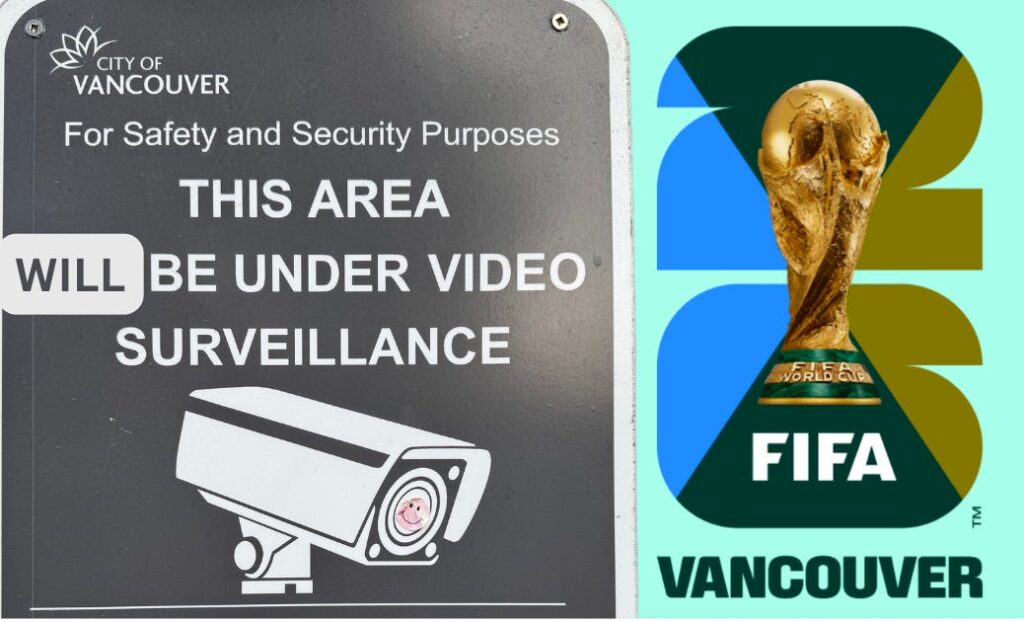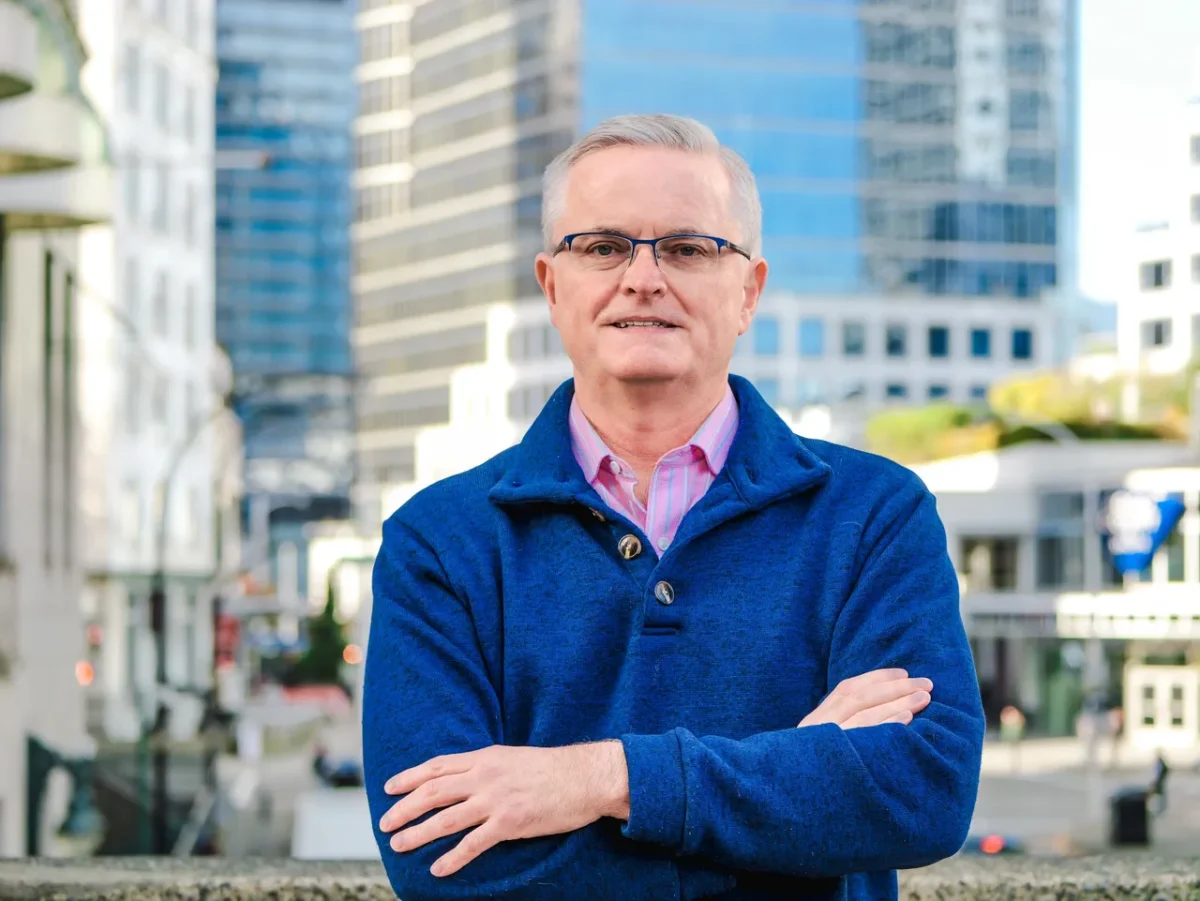Bob Mackin
The Quebec judge who investigated foreign interference found no evidence that Canadian politicians are traitors and she decided that foreign interference did not change the results of the 2019 or 2021 elections.
But foreign interference was felt at the riding level and has undermined confidence in Canadian democracy, according to Marie-Josee Hogue. She also called the Trudeau Liberal government slow to act, uncoordinated, a poor communicator and “insufficiently transparent.”
Hogue finished her one-year crash-course in foreign interference on Jan. 28, with the release of the final report of the Public Inquiry Into Foreign Interference in Federal Electoral Processes and Democratic Institutions.
What else did her seven-volume report say?
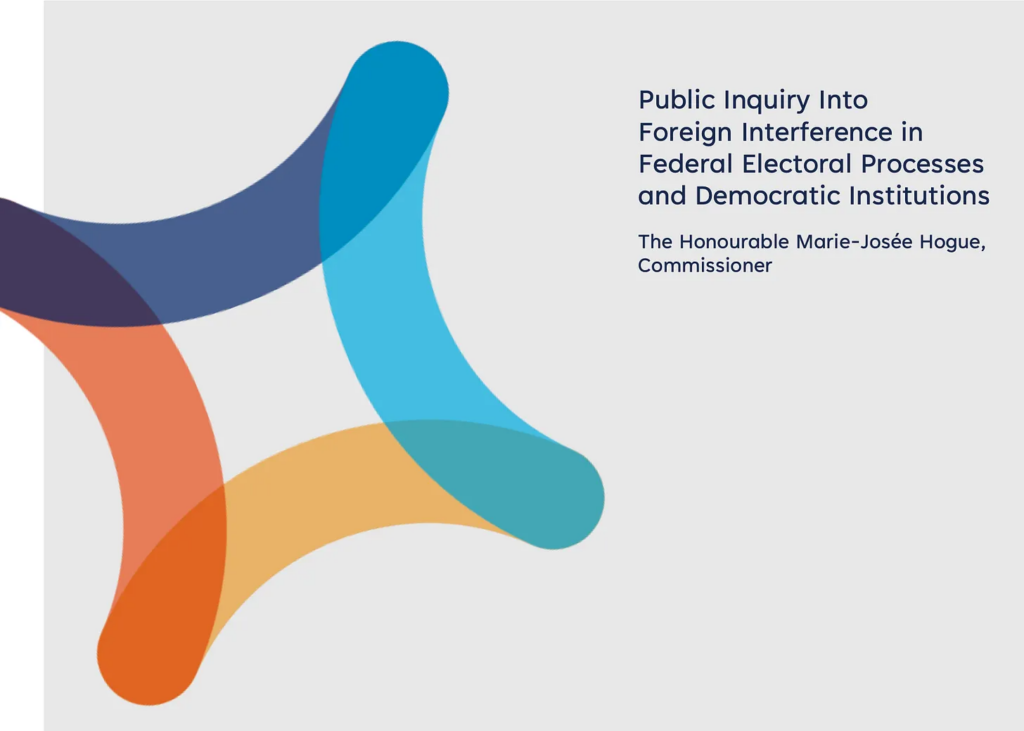
Cover of the Hogue Commission final report, released Jan. 28, 2025.
Disclaimer
The report warned at the start that “information may be incomplete.” It was sanitized for public release in order to protect information that could be “injurious to the critical interests of Canada or its allies, national defence or national security.”
On the 2019 General Election
“There is intelligence indicating that in the Vancouver area some PRC officials coordinated the exclusion of some political candidates, perceived as anti-China, from attending local community events related to the election.”
On Steveston-Richmond East in the 2021 General Election
The Office of the Commissioner of Canada Elections investigated Trudeau Liberal candidate Parm Bains’ upset of Conservative incumbent Kenny Chiu. Earlier in the year, Hong Kong-native Chiu had proposed a registry of foreign agents and voted to condemn China’s treatment of Uyghur Muslims.
OCCE looked at the Chinese-Canadians Goto Vote campaign and a pivotal meeting in Steveston between Bains and prominent members of local United Front groups.
“Although information received during the review led to suspicions that attempts to influence the Chinese Canadian community existed, the [OCCE] did not obtain sufficient evidence to support any of the elements of undue foreign influence or other contraventions of the Act.
“Investigators did, however, find indications that PRC officials gave impetus and direction to an anti-Conservative Party campaign, which was then carried out and amplified by an array of associations and individuals using various communication channels.”
On Vancouver-East in 2019 and 2021
NDP MP Jenny Kwan was shunned from Chinese-Canadian community events since 2019 and observed constituents being more fearful of voting, due to concerns about their families in China.
“Intelligence holdings indicate that the PRC worked to exclude particular political candidates from public events in 2019, and that this strategy continued in 2021.
“Ms. Kwan also raised concerns about a prominent member of the Chinese Canadian community in Vancouver hosting a free lunch in support of her Liberal Party opponent. The NDP filed a complaint with OCCE alleging a violation of third party election rules. The OCCE concluded that there was no violation but imposed an administrative monetary penalty to the Liberal Party campaign for not reporting the lunch as a contribution.
“Ms. Kwan also reported the lunch to the Royal Canadian Mounted Police (“RCMP”) and CSIS but, in her opinion, none of them seemed interested in the issue.”
On China
Hogue called it “…the most active perpetrator of foreign interference targeting Canada’s democratic institutions. The PRC views Canada as a high-priority target.”
China “targets all levels of government in Canada,” and supports those parties that it believes are helpful to its interests, “those it believes are likely to have power, no matter their political party.”
China relies on proxies, individuals and organizations and poses a sophisticated cyberthreat. It works internationally through the Ministry of State Security and the Ministry of Public Security, also acting through diplomatic officials.
“The United Front Work Department, formally a department of the Chinese Communist Party (CCP), tries to control and influence Chinese diaspora communities, shape international opinions and influence politicians to support PRC policies.”
On India
Intelligence reports indicate India “may have attempted to clandestinely provide financial support during the 2021 election without the candidates’ knowledge.”
“India perceives Canada as not taking India’s national security concerns about Khalistani separatism sufficiently seriously.”
Hogue’s report mentions the 2023 assassination of Khalistani separatist leader Hardeep Singh Nijjar and the expulsion of six Indian diplomats and consular officials last October.

Commissioner Marie-Josee Hogue (CPAC)
On Russia
Hogue found no evidence of a Russian disinformation campaign in 2021.
On Iran
Iran has, historically, not meddled in Canadian elections or democratic institutions, focusing instead on “transnational repression to prevent criticism of its government.”
“Iran relies on criminal groups to carry out its activities and conducts psychological harassment online.”
Hogue speculated that the 2024 listing of the Iranian Revolutionary Guard Corps as a terrorist group could result in increased foreign interference activity.
Foreign Interference Tactics
Hogue said there are nine key strategies countries employ, directly or through proxies or co-optees:
-
long-term cultivation of long-lasting relationships with their target
-
eliciting information from targets
-
covert financial support
-
mobilizing and leveraging community organizations
-
exploiting opportunities in political party processes
-
extortion
-
threats
-
cyber threats
-
media influence, misinformation and disinformation.
Recommendations
There are 51 of them, including suggestions for democratic reforms for political parties and third party campaigns.
Hogue said voting in nomination and leadership contests should be restricted to Canadian citizens and permanent residents, with a declaration of status from members.
The Canada Elections Act should be expanded to ban voter bribery and intimidation in nomination and leadership contests.
Third party campaigners should be required to file audited financial statements and foreign entities should be banned from contributing to a third party.
The federal government should collaborate more with other levels of government to counter foreign interference; it should publish a guide to help political parties guard against foreign interference and parties should use it to train staff and candidates.
NEW: Subscribe to theBreaker.news on Substack. Find out how: Click here.
Bob Mackin
The Quebec judge who investigated foreign








